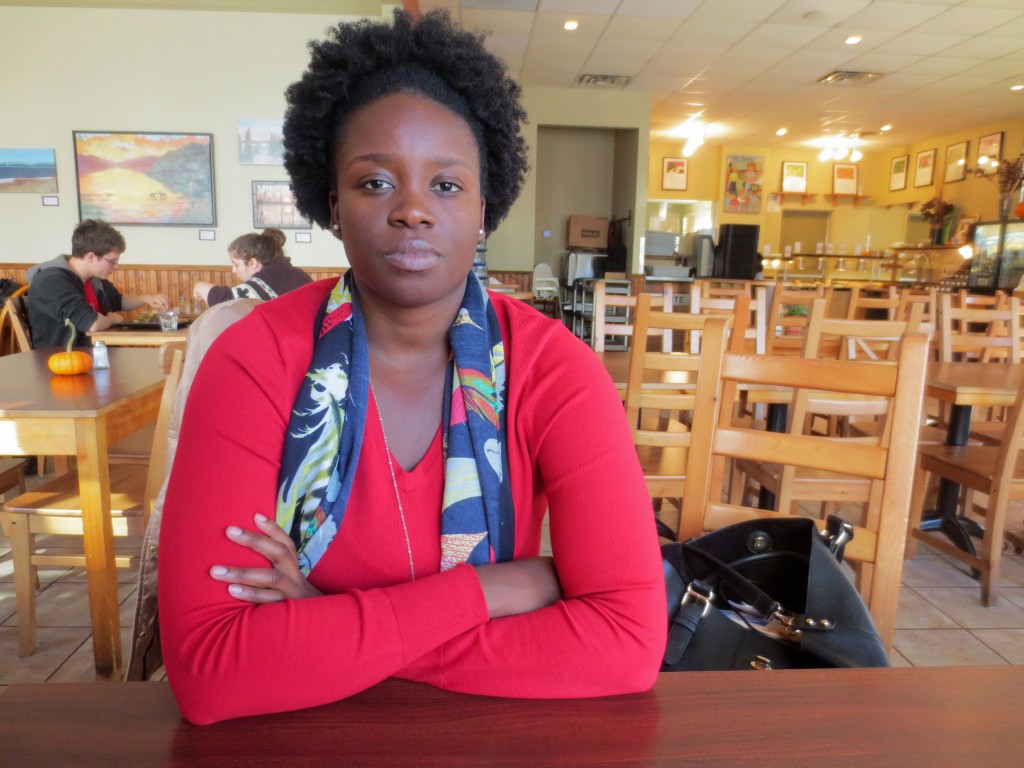
Sex crimes like rape and unwanted kissing increased nearly 24 per cent between 2010 and 2014, making Ottawa’s rate of sexual assault the fastest growing in Canada.
According to an analysis of Statistics Canada data, there has been a 23.7 per cent increase in the rate of level one sexual assault, Canada’s most common form of sexual violence. With the increased demand, victim services are feeling the pinch.
Yami Msosa is the public outreach coordinator for the Sexual Assault Support Centre of Ottawa (SASC), which runs a variety of support and counselling programs for survivors of sexual violence. She says the centre has been unable to meet the city’s burgeoning demand for its services.
“Its’ hard even just getting access to our services,” she says. “And it’s not because we don’t have people that are available to do the work and that are willing to do the work, it’s just the numbers. There’s a lot of folks that need support. And sometimes what we can offer is not enough.”
A similar narrative emerges at the Ottawa Rape Crisis Centre (ORCC). “We do have pressure,” says Tara Henderson, the centre’s public education and fundraising program coordinator. “Fundraising is more important for us than ever before, to be able to meet the demands and be able to be responsive, especially with more marginalized groups.”
An increase in reporting
Staff Sergeant Angela McDade of the Ottawa Police Service’s Sexual Assault and Child Abuse Unit says her team has seen a relatively steady rate of sexual assault in the city. However, she adds that the Statistics Canada data encompasses reports from the Ottawa Police Service, Ontario Provincial Police and RCMP, which may explain the discrepancy. Looking at the numbers, she says the situation in Ottawa may not be as grim as the data portrays it to be.
“It could possibly be that complainants or victims are more willing to come forward,” she says.
It’s a theory that’s gaining ground at Ottawa’s victim support centres. According to Henderson, stories like the Jian Ghomeshi affair last fall have led to a sudden spike in demand for the ORCC’s services.
“There’s been a lot of high-profile stories of women coming forward and being believed,” she says. “We increased our counselling by 46 per cent over the past year to try and respond to the demand.” Henderson says social media initiatives, such as the provincial government’s “Who Will You Help” Twitter campaign, have also encouraged survivors to seek counselling.
Statistics skewed
Even with the increased media attention, Henderson says the stigma surrounding sexual assault prevents many survivors from coming forward to police. Certain groups like aboriginal and disabled women, racial minorities and homeless individuals are less likely to report sexual violence, even though they often experience higher rates.
“The people who are most at risk for sexual assault are people who can be hard to track in statistics,” she says. As a result, Ottawa’s sexual violence support centres often see many more survivors coming through their doors than the police.
“The numbers that we see are always going to be inherently different,” says Msosa. “80 to 90 per cent of survivors do not report. And so you have a huge portion of survivors not reporting, but coming to us.”
On Sept. 17, the provincial government announced a $1.75 million increase to the base funding for Ontario’s 42 sexual assault support centres, including the ORCC and SASC. But although Msosa agrees the increased funding is a step in the right direction, she says it won’t be enough to meet the demand for services.
“We have over 50 people at our organization doing this work, and it’s not enough,” she says. “We have two sexual assault centres in Ottawa, and it’s still not enough.
“Sexual assault, it’s, yeah. Quite rampant.”
